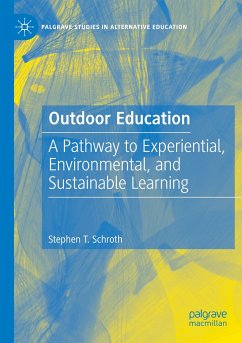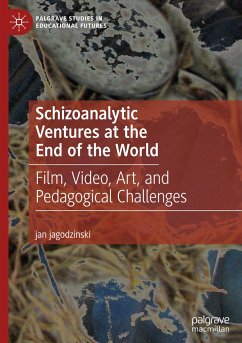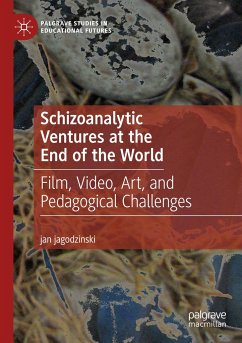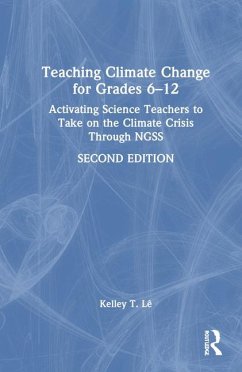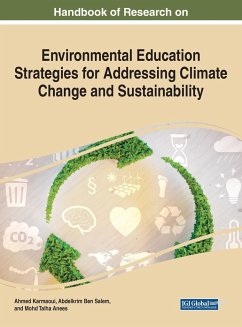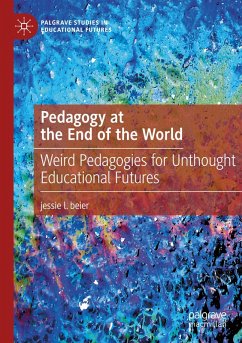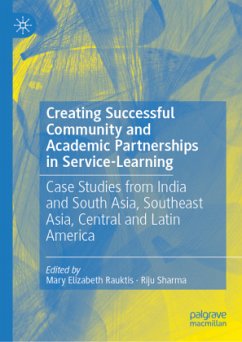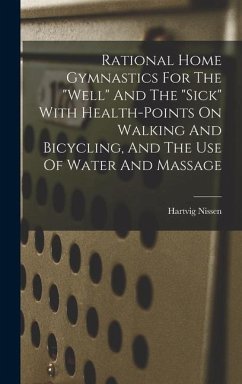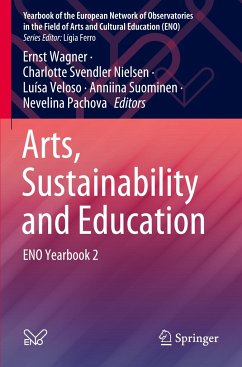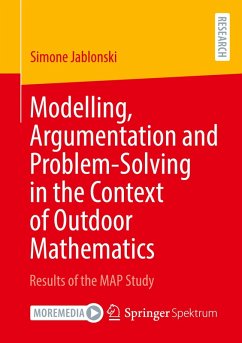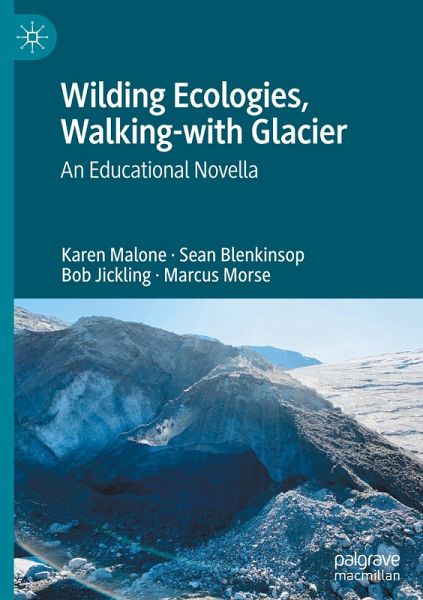
Wilding Ecologies, Walking-with Glacier
An Educational Novella

PAYBACK Punkte
49 °P sammeln!
This book is an educational novella composed from diverse encounters of walking-with a glacier, offering the reader possibilities for wilding ecologies as a means to be immersed in more-than-human lives and places. Wild rivulets of ecologies run through this novella, shifting fragments of geologic time over a disintegrating, icy, and watery landscape. Walking-with is positioned in the novella as an embodied methodology for attuning to, slowing down and paying attention. While walking, we weep, and bear witness to the unseen. In turn, this novella works with flows of pedagogy, theory, and colle...
This book is an educational novella composed from diverse encounters of walking-with a glacier, offering the reader possibilities for wilding ecologies as a means to be immersed in more-than-human lives and places. Wild rivulets of ecologies run through this novella, shifting fragments of geologic time over a disintegrating, icy, and watery landscape. Walking-with is positioned in the novella as an embodied methodology for attuning to, slowing down and paying attention. While walking, we weep, and bear witness to the unseen. In turn, this novella works with flows of pedagogy, theory, and collective creative practice. Glacier stories speaking through photographs, prose, poetry, and provocations. Collectively, the gathering of experiences in this book explores what it means to be human and more-than-human in the context of glacial melt and shifting loss. What is means to be changing our planet and, all the time, changing ourselves. Wilding ecologies emerges in the book, as a means to disrupt these anthropocentric ways of knowing, and by showing up, being affected, we can reawaken a newfound love and enchantment.



